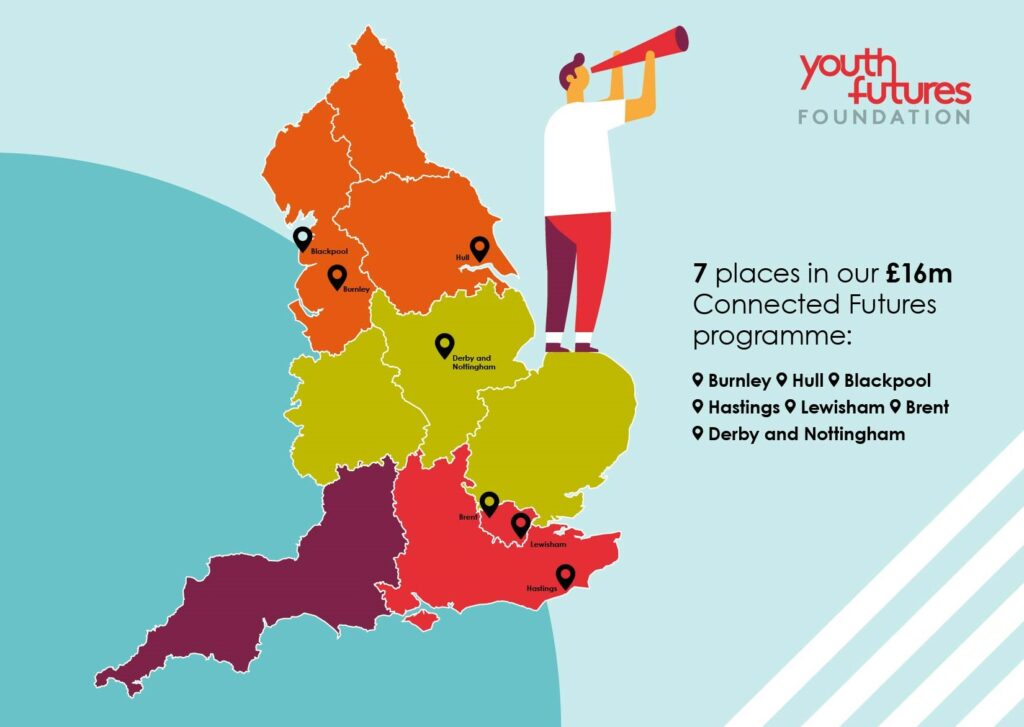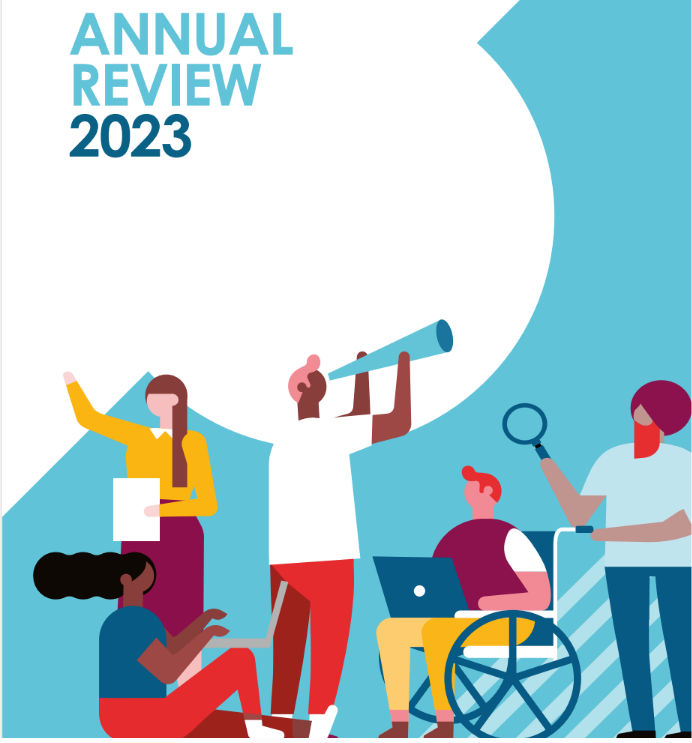Dan Jones, Connected Futures Lead at Youth Futures Foundation, comments on the launch of Connected Futures, and explains why a place-based approach is key to helping young people into good jobs.
At Youth Futures Foundation, our mission is to improve employment outcomes for young people from marginalised backgrounds.
Currently, too many young people are failed by the services that are supposed to help them. When we asked young people facing exclusion about their experiences of employment support, they told us about services that don’t take account of their circumstances, pull them in different directions, or simply don’t offer what they need. Young people have to fight for support to deal with the whole range of barriers they face, and too often they are only offered cookie-cutter solutions.
As one young person explained to us, this can have profound consequences. “That was why I didn’t go to uni. I was dealing with all of this stuff that was setting me back… maybe if people knew I was a care leaver they could have given me a bit more of a helping hand to understand things, like applying for a council house, taxes, even basic things like bills.”
It doesn’t have to be like this. Young people told us they want more joined-up, consistent help to find work. This isn’t just about careers or employability support – for some young people, education, health, social care, housing or criminal justice agencies may be just as important. Charities, employers and public services all have a part to play. What matters to young people isn’t the label on the service, but getting the right help at the right time, in ways that fit around them and not the other way round.
That’s why we launched our new £16m Connected Futures programme, with funding from the Dormant Asset scheme. We are funding partnerships involving local government, the voluntary and community sector, housing providers, employer bodies and others to develop new approaches that put young people at the heart of locally-tailored solutions.

In the first phase of the programme, partnerships will work with young people to explore the local context. They will bring together communities and organisations to develop a shared understanding of the barriers and problems facing young people, drawing on peer research, deep dives into data and stakeholder insight. They will build a shared ambition for change, bringing as many stakeholders as possible on board.
In phase two, we will invest up to £2m in each place to help partnerships realise these shared ambitions. It’s too early to say exactly what this will entail – young people will tell us what they find out, and what local solutions could look like.
Even at this early stage, though, partners are highlighting systemic failures. For example, as young people with learning difficulties enter adulthood, they fall into a gap between children’s services, which argue they are no longer eligible for support, and adult services, which argue that while they still have an Education Health & Care Plan they are not yet their responsibility. This can leave young people stuck without access to any support for months. The East Midlands partnership hopes to create shared pathways that can bridge this “eligibility gap”.
Local authorities are key players in Connected Futures. Across the programme, councils are helping to convene statutory stakeholders – from JCP to police to the local NHS. This is especially important in places like Brent, where VCS partners are in the lead. Connected Futures builds on earlier work by councils to mobilise collective action, for example through the Opportunity Areas in Hastings or Hull. As well as their networks, local authorities have important levers to pull as funders and providers of services. In London, Lewisham Council is leading the programme, ensuring that it connects to wider regeneration efforts. In Blackpool, the council hope to use the discovery process to feed into the delivery of the Town Plan and priorities for future funding streams such as the Shared Prosperity Fund.
For young people facing additional barriers to employment, business as usual is not enough. In fact, it can be actively harmful. They need real, sustained change in how employers, schools and services support them to make the transition into good work. We hope that Connected Futures can lead the way.


